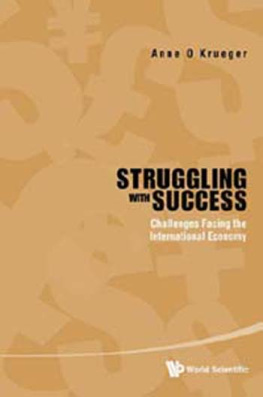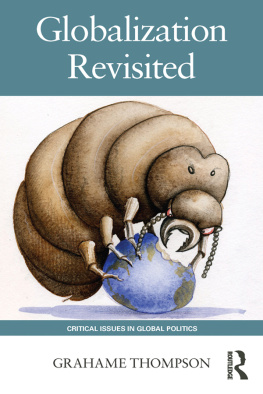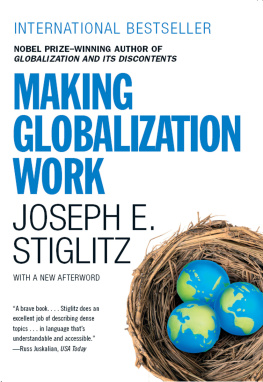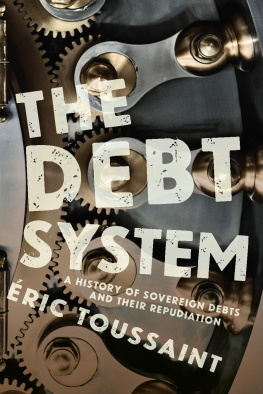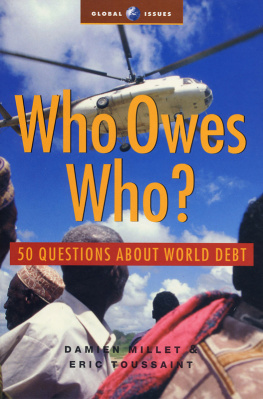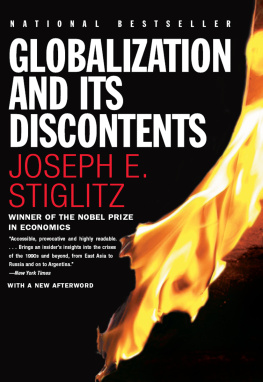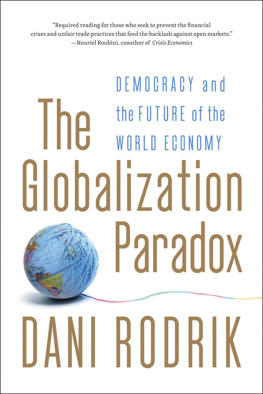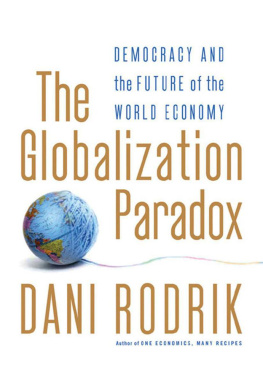
About the author
Wayne Ellwood established the North American office of New Internationalist and worked as a co-editor of the magazine until 2010. He has also worked as an associate producer with the groundbreaking BBC television series Global Report and edited the reference book The A-Z of World Development. He is also the author of The NoNonsense Guide to Degrowth and Sustainability (2013). He has travelled widely in Asia, Africa and Latin America. He lives in Toronto, Canada, where he is an editorial consultant and writer.
About the New Internationalist
New Internationalist is an award-winning, independent media co-operative. Our aim is to inform, inspire and empower people to build a fairer, more sustainable planet.
We publish a global justice magazine and a range of books, both distributed worldwide. We have a vibrant online presence and run ethical online shops for our customers and other organizations.
Independent media: were free to tell it like it is our only obligation is to our readers and the subjects we cover.
Fresh perspectives: our in-depth reporting and analysis provide keen insights, alternative perspectives and positive solutions for todays critical global justice issues.
Global grassroots voices: we actively seek out and work with grassroots writers, bloggers and activists across the globe, enabling unreported (and under-reported) stories to be heard.


Globalization
Buying and selling the world
Published in 2015 by
New Internationalist Publications Ltd
The Old Music Hall
106-108 Cowley Road
Oxford OX4 1JE, UK
newint.org
Fourth edition completely revised in 2015.
Previous editions 2001, 2006, 2010.
Wayne Ellwood
The right of Wayne Ellwood to be identified as the author of this work has been asserted in accordance with the Copyright, Designs and Patents Act 1998.
All rights reserved. No part of this book may be reproduced, stored in a retrieval system or transmitted, in any form or by any means, electronic, electrostatic, magnetic tape, mechanical, photocopying, recording or otherwise, without prior permission in writing of the Publisher.
Cover design: Andrew Smith, asmithcompany.co.uk
Series editor: Chris Brazier
Series design by Juha Sorsa
Printed and bound in Great Britain by Bell & Bain Ltd, Glasgow who hold environmantal accreditation ISO 14001.

British Library Cataloguing-in-Publication Data.
A catalogue record for this book is available from the British Library.
Library of Congress Cataloging-in-Publication Data.
A catalog for this book is available from the Library of Congress.
(ISBN ebook 978-1-78026-238-3)
Contents
Learning the lessons of the Great Depression
The idea of a new international economic order
This KFC world: corporations and culture
The explosion of foreign-exchange transactions
The cost of growth in China and India
This is a wide-lensed and well-documented analysis of globalization that lives up to its title. The years since its first publication in 2001 have confirmed and strengthened the original rich evidence of a totalizing depredation of the lives of the majority of the worlds people and their life-support systems.
What readers find in this fully updated mini-classic is a rich spectrum of documented facts showing trends of degeneration of societies and life conditions that media and states fail to recognize and respond to. While their stories and policies remain as systemically disconnected from collective human needs as 15 years ago, this work provides a valuable record of the life-blind systems march through the world.
Beginning with Cristbal Colns search for new riches turning to genocides, through the US-dominated Bretton Woods and IMF financial framework to the borderless corporate takeover of the world economy as a global casino, and beyond that to the life-and-death issues of poverty and the environment that the ruling economic paradigm blinkers out, the basic facts are held intact through the pressures of an era without a collective memory of its past. The last 35 years of the great depredation of human and natural life systems on Earth have brought no significant policies to prevent the runaway transnational money machine driving the devastation. Even the overdue adaptations recommended in the final chapter remain closed out of international policy discussion.
An accessibly impartial study like this is essential for a minimally informed understanding of these degenerate trends. We cannot sustain humanity or life on Earth by a ceaseless repetition of slogans of growth, market reforms, and we must compete harder as solutions to collapsing lives and life conditions of the rising majority of the world. The equivalent of a price of a cup coffee in increase of per-capita income is not being lifted out of poverty. The master ideal of a self-regulating global free market is absurd when tens of thousands of new corporate trade rules backed by financial embargo and armed force covertly institute the private demands of global money monoliths with elected legislatures made subordinate.
Governments now compete to enact the prescribed agenda, or they disappear. Deregulated global capital floods elsewhere in nanoseconds. Dissenting politicians, parties and policies are ignored or pilloried in the press. This second-order reality of buying and selling the world remains unspeakable to name, but this book reports basic life consequences tracked over a generation which are generally the opposite of a rising tide lifting all boats and new freedom and prosperity for people across the world.
Paradigm shift can only be achieved by re-grounding in the collective life capital of societies and ecosystems. Yet both continue to be stripped and despoiled by a runaway, private, money-sequence system multiplying itself as the final goal of humanity and the Earth. This system now spans all borders. Globalization: Buying and Selling the World tracks how the most powerful empire in history yields ever more riches to the richest while hollowing out human and natural life systems.
Next page


